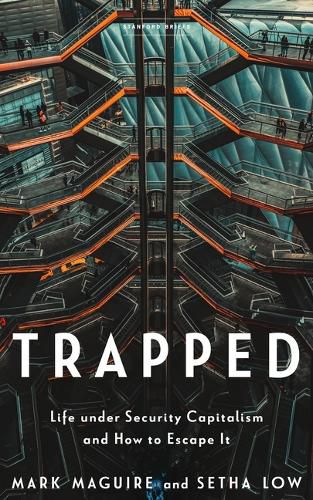Readings Newsletter
Become a Readings Member to make your shopping experience even easier.
Sign in or sign up for free!
You’re not far away from qualifying for FREE standard shipping within Australia
You’ve qualified for FREE standard shipping within Australia
The cart is loading…






Calls to defund the police or to stop brutal police violence, argue Mark Maguire and Setha Low, will never succeed as long as there are those who enjoy and take comfort in security capitalism. Security capitalism can be recognized by the marks it leaves on society, remaking public space in its own image-privatized, fortified, unequal, striated, and access-controlled. With a global and comparative lens that takes readers from Nairobi to New York City, Maguire and Low offer intimate portraits of the people behind security capitalism-the police, policy makers, and private contractors who agree that a price must be paid in blood to maintain public safety-and critique phenomena like the transfer of public funds to arms dealers via the militarization of police, securitized housing developments, and ineffectual counterterrorism efforts.
But more than just an expose of the nefarious corporations, corrupt agencies, and incompetent governments, this book uniquely shines the spotlight on the ordinary citizens whose desires for safety drive these phenomena. Angela Davis has written of the challenge of persuading people that "safety, safeguarded by violence, is not really safety." Maguire and Low aid us in thinking through the challenge, providing a common language to discuss security capitalism and offering ways to escape its clutches.
$9.00 standard shipping within Australia
FREE standard shipping within Australia for orders over $100.00
Express & International shipping calculated at checkout
Calls to defund the police or to stop brutal police violence, argue Mark Maguire and Setha Low, will never succeed as long as there are those who enjoy and take comfort in security capitalism. Security capitalism can be recognized by the marks it leaves on society, remaking public space in its own image-privatized, fortified, unequal, striated, and access-controlled. With a global and comparative lens that takes readers from Nairobi to New York City, Maguire and Low offer intimate portraits of the people behind security capitalism-the police, policy makers, and private contractors who agree that a price must be paid in blood to maintain public safety-and critique phenomena like the transfer of public funds to arms dealers via the militarization of police, securitized housing developments, and ineffectual counterterrorism efforts.
But more than just an expose of the nefarious corporations, corrupt agencies, and incompetent governments, this book uniquely shines the spotlight on the ordinary citizens whose desires for safety drive these phenomena. Angela Davis has written of the challenge of persuading people that "safety, safeguarded by violence, is not really safety." Maguire and Low aid us in thinking through the challenge, providing a common language to discuss security capitalism and offering ways to escape its clutches.